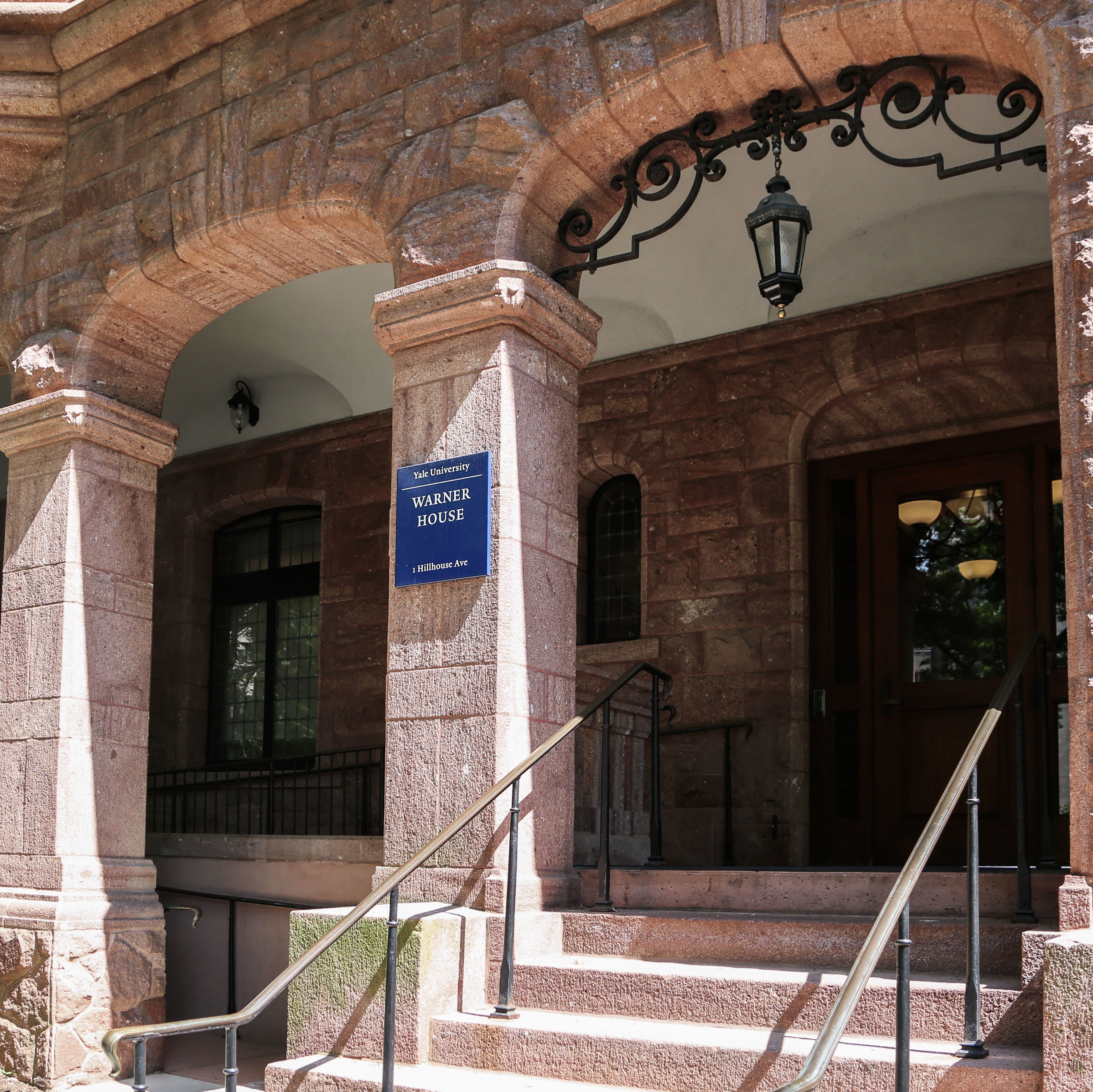
Roughly 30 graduate students met with Yale administrators for a listening session at Warner House on Friday afternoon to voice concerns about institutional racism and demand that the University take concrete steps to address the issue. The listening session came three days after a white graduate student reported a black classmate to Yale police for sleeping in a Hall of Graduate Studies common room, an incident that has sparked controversy and conversation on campus and beyond.
The University announced on Wednesday night that it would hold multiple listening sessions in the coming days and months in response to the incident. Friday’s session was the first, and administrators have yet to announce when they will hold the next.
At the tense two-hour listening session on Friday, Yale Police Chief Ronnell Higgins, University Secretary and Vice President for Student Life Kimberly Goff-Crews, Vice President for Human Resources & Administration Janet Lindner, Dean of the Graduate School of Arts and Sciences Lynn Cooley and Vice President for Communications Eileen O’Connor acknowledged the administration did not yet have an actionable plan to address the issues of racism and discrimination that Tuesday’s incident brought to light.
“I don’t know what the next step is, and I’m trying to figure it out,” Goff-Crews said.
Goff-Crews added that her office is unlikely to formulate any specific next steps until after commencement on May 21, which she oversees as University Secretary.
As of Friday morning, over 700 alumni had signed a letter to University President Peter Salovey expressing dismay with the Yale Police Department’s and the University’s responses to the incident. The letter calls on University leaders and faculty to join student activists in the fight against the “racism and white supremacy” ingrained in Yale’s “legacy, its curriculum and pedagogy, its disciplinary policies” and other practices.
The letter criticizes administrators’ plan to hold listening sessions addressing the incident, saying that those sessions will do no good without additional action. The letter does not make any specific demands for policy changes.
“Days later it remains unclear exactly how, beyond listening sessions and task forces to tell us what we already know, Yale aims to take responsibility for creating a ‘welcoming environment’ for all students,” the letter reads. “We hope that you, as the president of Yale University, will take public and active responsibility for this display of racist violence, and the long history of racism at Yale, in a substantive and ongoing way.”
At the event on Friday afternoon, students demanded to know how the same student could twice call the police on black students acting entirely within their rights without facing disciplinary action from the University. The white graduate student, Sarah Braasch GRD ’20, allegedly called the police on another black graduate student in HGS in February. According to the student, Braasch accused him of being an intruder.
In response to calls for disciplinary action, Cooley outlined the University’s confidential processes to address discrimination through both informal and formal discussion, adding that the University needs to increase visibility for these processes. According to a University web page titled “President’s Procedure for Addressing Students’ Complaints of Racial or Ethnic Harassment,” a student who thinks he has been harassed on account of race or ethnic origin by a member of the Yale community can submit a complaint to the President’s Committee on Racial and Ethnic Harassment.
The committee offers informal resolutions but can also conduct a review of the complaint and submit a recommendation to the University president as to whether racial or ethnic harassment occurred. If the president deems disciplinary action necessary, the case goes to an appropriate disciplinary body, such as the Yale executive committee.
Though she could not share confidential details, Cooley said the first incident was handled by Michelle Nearon, associate dean for graduate student development and diversity, and Valarie Stanley, director of the Office of Equal Opportunity Programs. Cooley added that her office was looking into this week’s incident but that the three-day old investigation was still in its early stages.
O’Connor said that the details of the process for addressing Tuesday’s incident are confidential for legal reasons.
In response to an incident like this one, Goff-Crews said, Yale could suspend on-campus housing for the student at fault or engage in conversations with the student about improving behavior. Cooley added that the incident also raises the question of whether a graduate student found upon review to have demonstrated bias should be allowed to teach.
“The trick is to have compassion, have empathy, for the person, but hold them accountable for their behavior,” Goff-Crews said. “There’s a wide range of things you can do.”
Students also called for changes to the processes that brought four officers to the scene of the incident. Higgins conceded that the presence of two or more officers can be alarming, but he added that the department has dealt with situations in the past when lack of police response has caused problems. To address escalation in incidents like these, Goff-Crews suggested that the University would consider instituting a system for assessing situations before calling the police.
Most undergraduate students were not on campus for Friday’s listening session, since the academic semester concluded on Wednesday and residences closed the following day. Goff-Crews said she is interested in holding similar events addressing the implications of the HGS incident for undergraduates when they return to campus in August.
A change.org petition calling for Cooley and Goff-Crews to remove Braasch had garnered 514 signatures as of Friday evening.
Britton O’Daly | britton.odaly@yale.edu
Hailey Fuchs | hailey.fuchs@yale.edu







